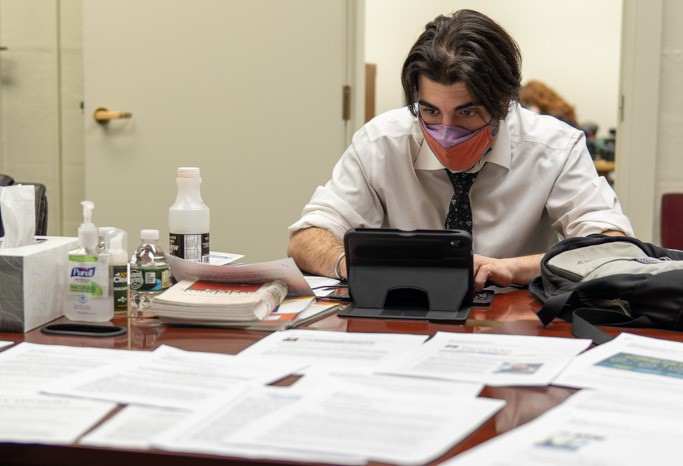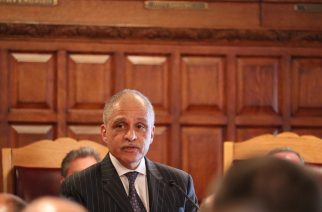
Syracuse University’s Tully Center for Free Speech and the Empire State School Press Association recently hosted a webinar in recognition of Student Press Freedom Day.
The event centered around the Student Free Speech Act and was headed by the bill’s co-sponsors — Assemblywoman Donna Lupardo and Sen. Brian Kavanagh.
The bill would allow student journalists to cover, report and publish news without fear of censorship.
Specifically, the legislation would extend and protect freedom of speech and the press in school-sponsored newspapers by allowing for more autonomy of student journalists over the content of their publications.
This bill would expand freedom of speech and the press by giving final editorial control to student journalists at public and charter high schools, while at the same time continuing long standing ethical standards which will encourage responsible journalism. This bill contains oversight protections.
The student journalist free speech movement has been building in momentum in recent years, with more than a dozen states passing free speech protections for student journalists.
The U.S. Supreme Court ruled in Hazelwood v. Kuhlmeier that federal law gives schools broad powers to censor student journalists if they have pedagogical concerns. However, the “concerns” that schools can use to censor student newspapers were not specifically defined, allowing schools to censor students for legitimate journalistic inquiries and publications.
In March of 2019, CNN published a piece by one such student journalist whose Texas school censored her journalism. The school principal deemed her coverage as not “positive or uplifting,” such as an article about how an anti-LGBT backlash to school programming led to the removal of a book from the school reading curriculum. Subsequent news stories have been written since then similarly highlighting the need for state-level student journalist free speech protections, particularly in the wake of how recent national events have affected students, their schools, and their communities.
“As of December, 15 states have some sort of student journalist’s protection act, and this bill will allow New York to become the 16th,” said Roy Gutterman, professor at Syracuse’s Newhouse School of Public Communications.
Currently, as per the decision made through the legal case Hazelwood School District v. Kuhlmeier, schools are allowed to censor student journalists as long as the censorship is “reasonably related to legitimate pedagogical concerns.”
Lupardo noted the bipartisan acceptance that the bill has gained.
“In the Assembly, we have the most — some of the most liberal members of the Legislature, and some of the most conservative on this particular bill,” Lupardo said.
The bill has more than 50 co-sponsors between the Assembly and Senate, with hopes of garnering more support to push the bill out of committee. It is currently in the Senate Education Committee and the Assembly Education Committee.
Pushback against the bill revolves around the supervision of students. There have been cases in both colleges and high schools regarding censorship of student journalists and the right these institutions have to control the content of what is being published.
According to Katina Paron, journalism professor at Hunter College, this should not be a concern.
“There’s a teacher in the room. All of these journalists have advisors that are guiding, and mentoring and teaching them,” Paron said. “They’re creating the guardrails and the structure for the young journalists to do their work.”
Paron also noted that advisors have protections in the bill that prevent them from being punished based on what a student journalist might write or produce.
“In some schools, I know this happened in New York and elsewhere too, if the paper publishes something the principal doesn’t like, the advisor will get punished,” Paron said. “This bill protects the teachers from getting any type of retaliation for something their students publish. That’s a really key part of this and we’re trying to make sure teachers unions know about it.”
The roundtable concluded with participants addressing questions from among the 70 attendees. One participant asked how students could help promote the bill, and Mike Simons, coordinator of New York New Voices responded by pointing out that New York New Voices “had a phone bank about three weeks ago where students reached out to 40 of Senator Kavanagh’s colleagues.”
“If it’s not libelous, if it’s not an invasion of privacy, incitement of violence, or profane, then it can print,” said Mike Simon, coordinator of New York New Voices.
Caleb Guerrido is a senior at SUNY New Paltz and majors in journalism. He wants to become a sports radio broadcaster/podcaster, and eventually own his own podcasting network. In his spare time, Caleb loves listening and creating podcasts, hanging out with friends and making money moves.









